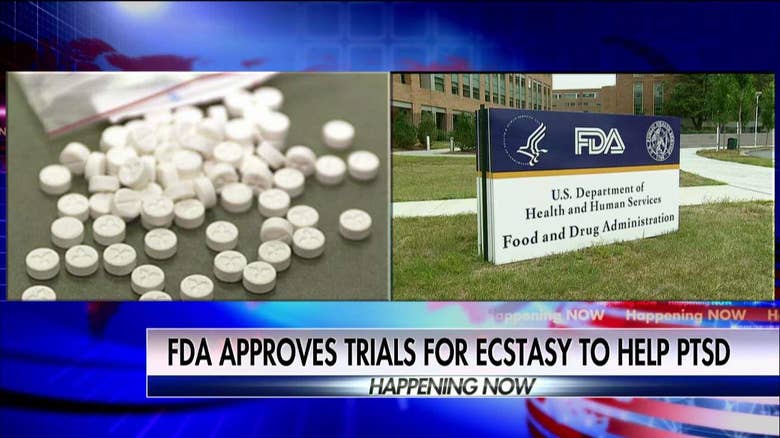Ecstasy to Treat PTSD? FDA Greenlights Next Phase
Post# of 52112


Following results of successful testing, the FDA has approved the next phase of clinical drug trials involving the illegal rave drug Ecstasy as a possible treatment for post-traumatic stress disorder (PTSD).
Dr. Michael Mithoefer, a psychiatrist who led the first two phases of the trials in Charleston, S.C., joined Fox News host Jenna Lee Thursday on Happening Now to discuss the findings.
Patients are given Ecstasy, aka MDMA or Molly, three times in supervised sessions over the course of 12 weeks. All of these patients had gone through prior treatments that had been deemed unsuccessful in treating their PTSD.
"The way it seems to work is it helps decrease people's fear and defensiveness and give them a sense that they can face their trauma and process it in therapy in a way that they hadn't been able to without the MDMA," Mithoefer said.
Participants in the study reported a 56 percent decrease in their PTSD symptoms when taking Ecstasy, which was banned by the U.S. government in 1985 due to safety concerns.
"We have seen very promising results in this series of phase II trials, and now we have to go forward into larger trials to definitively establish the safety and efficacy," Mithoefer said.
The trials are now set to move into phase III. Temporary side effects of Ecstasy include jaw tension and decreased appetite, while long-term side effects include increased blood pressure and pulse.
 (0)
(0) (0)
(0)